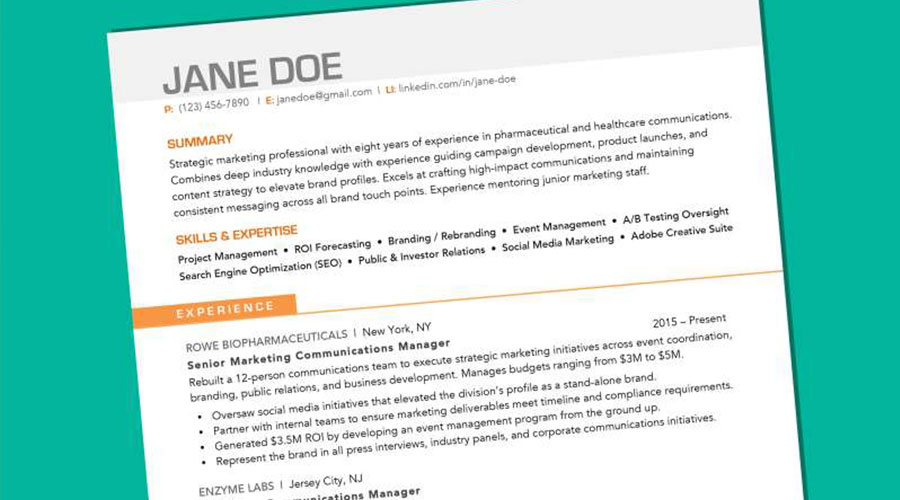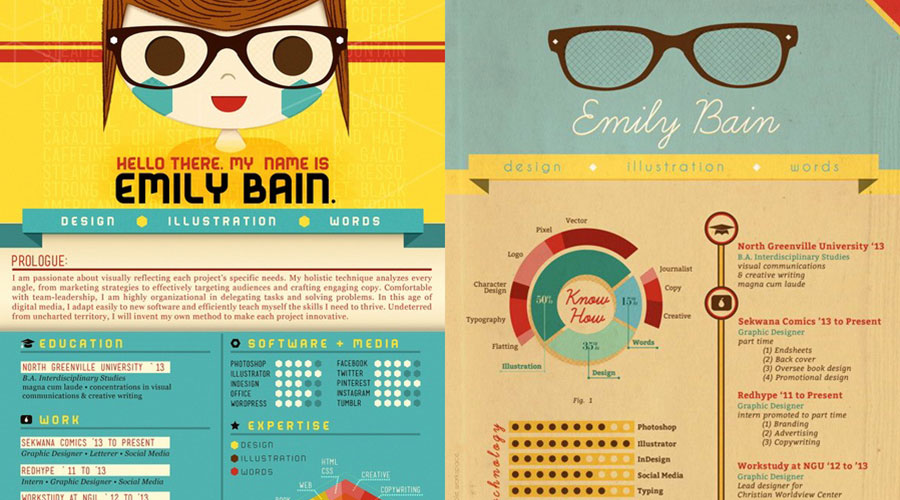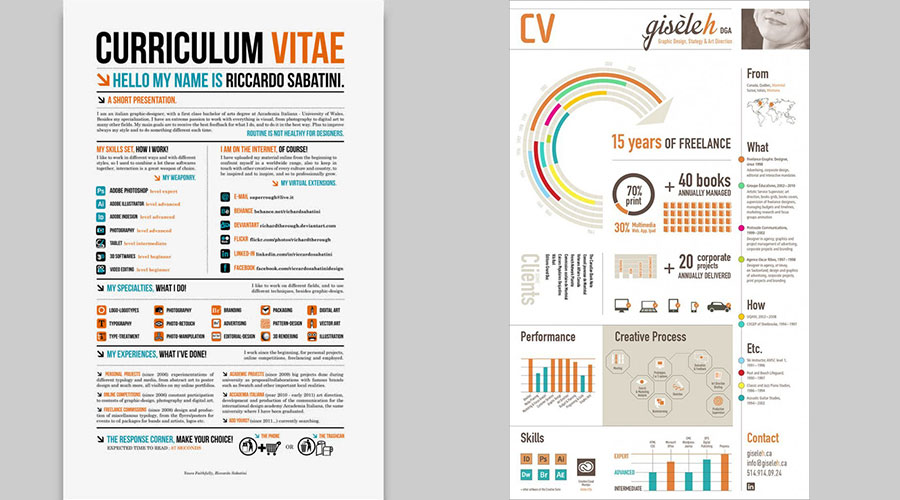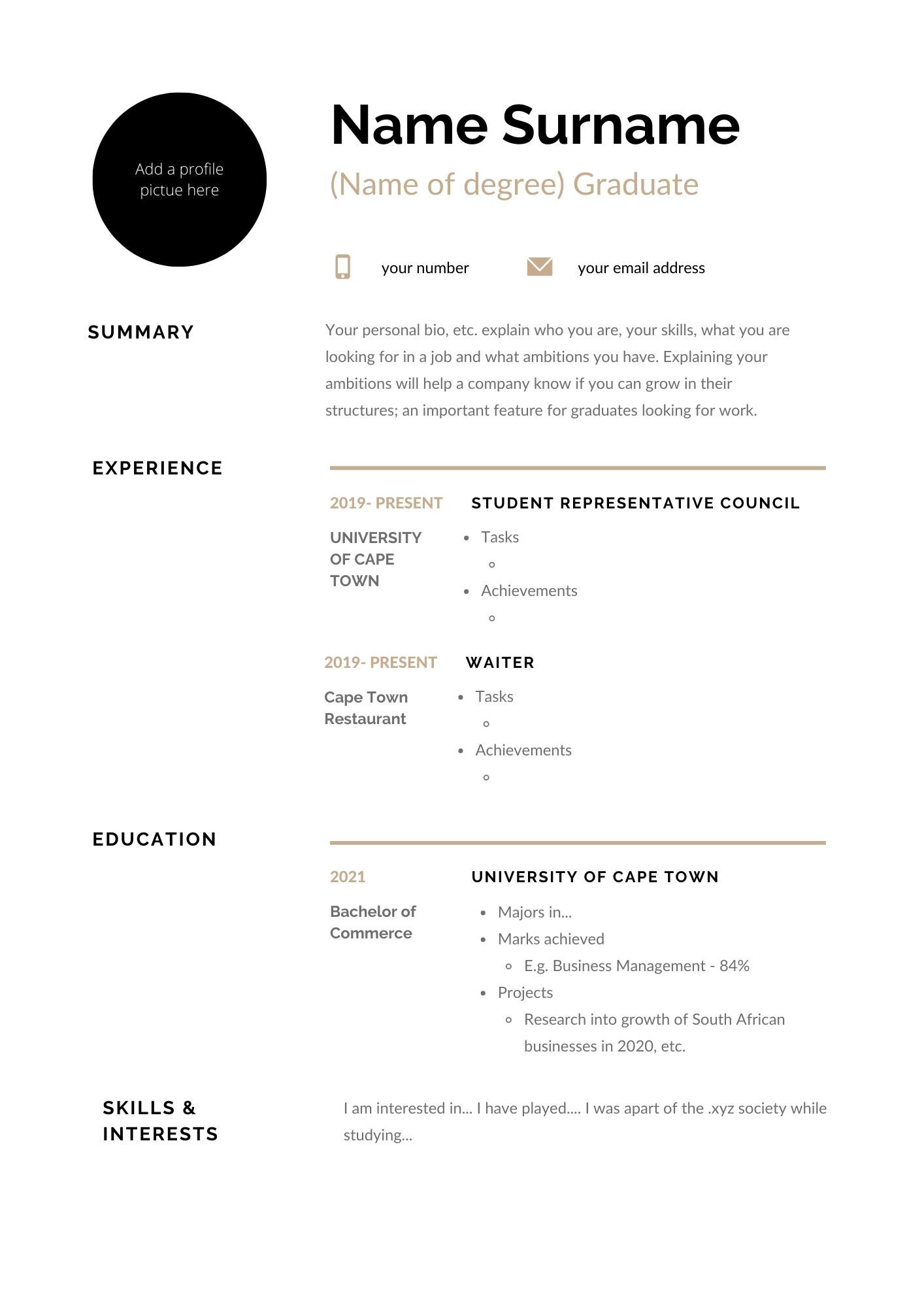Any recent graduate will tell you, finding a job as a graduate in South Africa is a challenge, and in a tough job market, you will need to make sure that your CV stands out. As a student, you may not have the experience, which makes writing a CV even more difficult.
But, don’t stress! Whether you are applying for a full-time job after graduating or looking for a part-time job to supplement your studies, we are going to help you write a CV that will put you in the best position to land a job.

What is a student CV and how is it different to other CVs?
A student CV is a curriculum vitae of a person that does not have much work experience but might have some form of qualification. A professional CV, will typically have a couple years of work experience behind it.
As a student, your low or absent work experience naturally disqualifies you for most roles, however, employers do understand that students are unlikely to have all of the experience and skills required for a role. As a result, a student CV will typically focus on the attributes of the student rather than their work experience.

How to begin writing a CV as a student
Creating a CV from scratch with no examples will present numerous challenges – so it is best to start by looking at examples of other student CVs. Finding a CV template and working from that will help you get started and direct you to communicate your skills better.
To help you, we have created a South African student CV template below that you can download and use for free! You can find other great CV templates on CANVA.
What should you put in your CV?
A CV should be short, but packed full of valuable and well organised information that your potential employer is looking for. This means that you should tailor your CV to the type of job you are seeking and potentially even to the specific job advert you are responding to.
While we’ll leave the tailoring to you there are some key aspects that all CVs should contain. The first thing on your CV should be your name and contact details. After your name, you should add your personal introduction, which is essentially a brief bio of yourself. Then add any work experience you might have and your education qualifications.
A good CV should contain the following:
Contact details
You should provide all of the important contact information that a potential employer may require. Make sure contact information is clear, easy to read, professional (you may want to create a new email address if yours looks like this: NINJA_skillz435@email.com), and well organised. Depending on the role, you may want to include a link to a portfolio site, or website, but the following information should be present:
- Full name
- Place of residence
- Phone number
- E-mail address
- LinkedIn profile (if you have one that is up to date)

Personal introduction
This is a short paragraph where you explain who you are, your skills, what you are looking for in a job and what ambitions you have. Explaining your ambitions will help a company know if you can grow in their structures; an important feature for graduates looking for work.
In the introduction make yourself stand out, by saying what matters about your potential in a concise way. Keeping it short and impactful, will impress a future employer.

Work experience
Break down work you may have done in the past. Briefly explain your responsibilities and achievements. Focus on skills that you can use in the job you are applying for. A tip on work experience – employers like to know what you have achieved more than your job responsibilities. It helps them assess how you will do in a job role.
So, when you are writing your work experience, explain that at x role you achieved xyz on top of your responsibilities. This is another factor on your CV that should help you get the job you are applying for.

Education and qualifications
Include all of your qualifications, placing your most recently finished qualification first (reverse chronological order). It might be helpful to include relevant achievements you earned while studying. This will show a future employer your work ethic and potential.
You’ve spent years getting your education and qualifications, it’s a big deal. Include them, future employees will take tertiary qualifications into account when employing someone.

How to write a CV with no work experience?
If you are studying, or have recently finished studying, gaining work experience can be near impossible. That experience won’t materialise overnight. So, when you are writing your first CV, you are going to have to work around that.
Firstly, don’t make up fake work experience. That will get you into a lot of trouble. What you will need to focus on is what you have done in the past that has developed your skills through different activities. For example, being a member of a club or sports team. You can use this experience to show your communication and organisational skills.

Think outside the box to prove your skills
On your student CV, part-time and holiday jobs count as experience. For example, if you helped at an event, that is work experience. If you have little to no work experience, you should focus on the following aspects:
- Extra-curricular activities:
Have you been involved in a club at varsity? Were you a part of student leadership? Or, did you write for your university’s newspaper? If you did any of the above, or something similar, you should add that to your CV. It shows what skills you gained at university and your level of commitment.
- Your interests:
Your hobbies and personal interests can at times line up well with the industry or job you are applying for. If that is the case, it can give you a big advantage in the job application process. Try to be specific, like who your favourite authors or thinkers are. This can result in a great conversation starter in a job interview.
- Projects:
If your degree is relevant to the job you are applying for, the chances are high that you will have done a project that is relevant too. This can reveal the work you are capable of doing. Describe the project, the role you played in it and the outcome of the project.
- University achievements:
If you did really well at university, showing a potential employer your marks can help them see that you are a high achiever. Making it more likely for them to employ you. Try to focus on the marks that are relevant to the job you are applying for. Try not to include your High School marks though, most employers do not want to see those.

How to make your student CV stand out
When you are creating a student CV, you need to make a document that will stand out. Having no work experience is a drawback but working around that to make an excellent CV is possible.
Here are steps you can take to really make your CV stand out.

Show your personality
This might be surprising but most employers want to employ someone who fits into the company culture. So, make sure to show some of your personality in your CV. That way, a potential employer will get to know something about you from your CV, and from there figure out how you will add value to their culture.
Tailor your CV to the job
To start, make sure your CV is tailored to the job you are applying for. For every job, the job description will give you clues as to what an employer is looking for in a candidate. Using this information, you should tailor your CV so that it includes information about the skills required for the job.
Make the most of your introduction
Your personal introduction is the first thing a potential employer will read on your CV. This part of your CV is make or break. Make sure it is concise. Don’t write your life story but focus on what will make you a great employee. Show an employer that you can communicate well, and that you have exactly what they need.
Focus on your transferable skills
During your life you will have picked up a variety of skills. Many of these skills will be transferable to a job that you are applying for. This is key to highlight in your CV if you have little to no work experience.
Add a cover letter
Most job applications require a cover letter. Make sure to add one when applying for a job. Not only because it is a requirement but also because it can give you a big advantage. A cover letter can help you show an employer who you are and what makes you suitable to the job. Make sure that your cover letter is not longer than 1 page.
Use the right keywords
Employers often receive hundreds of CV’s, so they will scan through them to look for certain keywords. Read the job description to find keywords that they may be looking for. An example would be to say a job description mentions that they are looking for someone with ‘data analysis skills’, then if you have any experience with data analysis make sure to mention that on your CV.
What Format and Structure are best for a Student CV?
When creating a CV, it should be no more than 1 or 2 pages long. This is not a lot of space and the formatting and structure you choose to use can make or break your CV.

The Page Size and Paper
Firstly think about the page and paper. Make sure that it can be printed on an A4 piece of paper. If it is two pages, and you are submitting a hard copy, print on both sides of the A4 paper.
The File Format
When submitting online or via e-mail make sure you submit your CV as a single document (combine cover letter and CV into one) in an un editable format such as PDF format. Sending your CV as a word document is a common mistake, but one that is seen as unprofessional. So, don’t miss a job opportunity by using the wrong file format, MAKE YOUR CV A PDF.
Font Choice
In terms of the font you use, make sure it is clear, readable and professional. Avoid fonts like Comic Sans, rather use fonts similar to Times New Roman and Arial. A good, readable font size to use is size 12. Make sure to use a slightly larger font size for your name and contact details and try to use a bold font weight for headings.
Structure & Layout
In terms of structuring the document, use subheadings for each section of the CV, i.e. Introduction, Experience, Education, etc. You should also use line breaks between sections and within each section and overall try to make the document easy to follow and navigate. This will make reading your CV a lot easier.
Content
The last point is about the content on your CV. You should also try to be as brief and to the point as possible. Where possible make lists and use bullet points rather than writing paragraphs.
Review and Check Your CV for Errors
Once written be sure to proofread your CV- nothing comes across worse on a CV than a spelling or grammatical error. You should also try and get as many people as possible to review it for you to find any potential errors in spelling, grammar, layout, or content.
South African Student CV example
To make your life as easy as possible, we have created a student CV example and that is free for you to download and use as a template.

If you are currently studying, and looking for more student lifestyle resources for living in Cape Town, our blog is full of useful resources . These blogs include, tips on how to make friends in Cape Town or how to save money as a student.
If you are looking for student accommodation in Cape Town, we are the place for you. Get in contact and apply to stay at Nest today!





